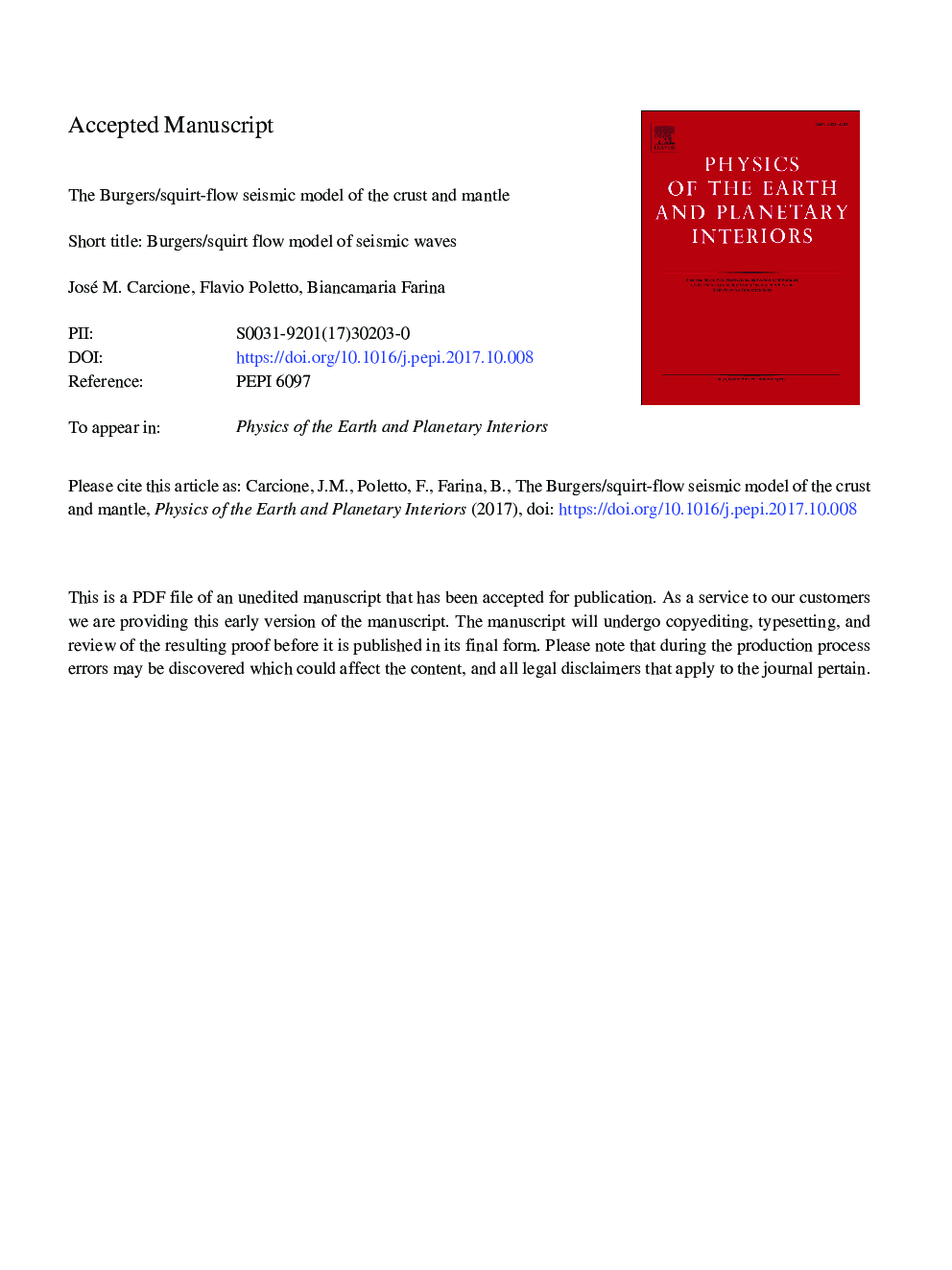| Article ID | Journal | Published Year | Pages | File Type |
|---|---|---|---|---|
| 8915749 | Physics of the Earth and Planetary Interiors | 2018 | 31 Pages |
Abstract
The Burgers element allows us to model the effects of the steady-state creep flow on the dry-rock frame. The stiffness components of the brittle and ductile media depend on stress and temperature through the shear viscosity, which is obtained by the Arrhenius equation and the octahedral stress criterion. Effective pressure effects are taken into account in the dry-rock moduli by using exponential functions whose parameters are obtained by fitting experimental data as a function of confining pressure. Since fluid effects are important, the density and bulk modulus of the saturating fluids (water at sub- and supercritical conditions) are modeled by using the equations provided by the NIST website. The squirt-flow model has a single free parameter represented by the aspect ratio of the grain contacts. The theory generalizes a preceding theory based on Gassmann (low-frequency) moduli to the more general case of the presence of local (squirt) flow and global (Biot) flow, which contribute with additional attenuation mechanisms to the wave propagation.
Related Topics
Physical Sciences and Engineering
Earth and Planetary Sciences
Geophysics
Authors
José M. Carcione, Flavio Poletto, Biancamaria Farina,
